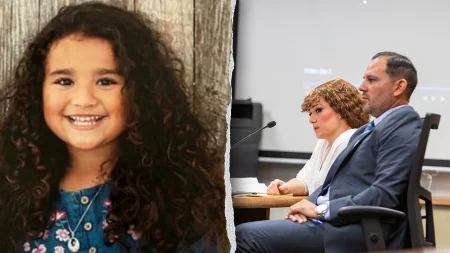Former Alaska Airlines Pilot Sentenced for Mid-Flight Incident
In a case that highlights the human vulnerabilities of those we trust with our safety, former Alaska Airlines pilot Joseph Emerson has been sentenced to time served plus three years of supervised release for attempting to shut down the engines of a passenger flight while experiencing a psychedelic episode. U.S. District Court Judge Amy Baggio, who handed down the sentence in Portland, Oregon, emphasized a compassionate perspective: “Pilots are not perfect. They are human. They are people, and all people need help sometimes.” This ruling spared Emerson from the additional year of prison time sought by federal prosecutors, acknowledging both the seriousness of his actions and his subsequent efforts toward rehabilitation.
The incident occurred on October 22, 2023, aboard a Horizon Air flight from Everett, Washington to San Francisco, where Emerson was riding off-duty in the cockpit. In a state of severe sleep deprivation—having gone over 40 hours without rest—and under the lingering effects of psychedelic mushrooms consumed two days earlier, Emerson attempted to pull two red handles that would have activated the fire suppression system and cut fuel to the engines. He later explained he believed he was dreaming and was trying to wake himself up. Quick action by the flight crew prevented what could have been a catastrophic outcome for the 84 passengers and crew members aboard. The flight was diverted to Portland, where Emerson was taken into custody.
Emerson’s defense attorney, Ethan Levi, attributed the incident to “untreated alcohol use disorder,” explaining that Emerson had been drinking and accepted mushrooms due to “lower inhibitions.” After spending 46 days in jail, Emerson was released in December 2023 under conditions requiring sobriety, mental health treatment, and staying away from aircraft. At his sentencing, Emerson took full responsibility for his actions: “I’m not a victim. I am here as a direct result of my actions,” he told the court. “I can tell you that this very tragic event has forced me to grow as an individual.” His wife, Sarah Stretch, also addressed the court, expressing pride in her husband’s personal growth since the incident and extending apologies to those affected.
The human dimension of this case was further illuminated by Alan Koziol, one of the pilots aboard the Horizon Air flight, who recalled that Emerson seemed “more like a trapped animal than a man in control of his faculties” during the incident. Koziol made a compelling point about the aviation industry, suggesting it should allow pilots more freedom to seek mental health care without fear of career repercussions, given the “immense responsibility” pilots bear. This sentiment points to a broader conversation about mental health support in high-stress professions where public safety is at stake. Federal prosecutor Geoffrey Barrow, however, emphasized the gravity of Emerson’s actions, noting that the quick-thinking crew “saved the day by intervening” in a situation where dozens of lives were at risk.
For passengers like Alison Snyder, who testified by phone during the proceedings, the psychological impact of the incident remains profound. “Because of Joseph Emerson’s actions that day, we will never feel as safe flying as we once did,” she told the court, revealing the lasting trauma that can result from such incidents even when catastrophe is averted. Emerson had pleaded guilty to all federal charges of interfering with a flight crew as part of an agreement with prosecutors. In separate state proceedings in Oregon, he faced 83 counts of endangering another person and one count of endangering an aircraft, resulting in a sentence of 50 days in jail (with credit for time served) and five years of probation.
Beyond his formal sentence, Emerson has been ordered to complete 664 hours of community service, half of which he can fulfill through his own pilot health nonprofit organization called “Clear Skies Ahead”—a name that perhaps reflects his hope for the future. He must also pay $60,000 in restitution, primarily to Alaska Air Group, and continue to comply with provisions regarding drugs, alcohol, mental health treatment, and avoiding aircraft. This case ultimately serves as a sobering reminder of human frailty, even among those entrusted with enormous responsibility, while also highlighting the potential for rehabilitation and growth following moments of profound failure. As Emerson works to rebuild his life under these conditions, the aviation industry may have an opportunity to reflect on how it addresses mental health challenges among its personnel.








